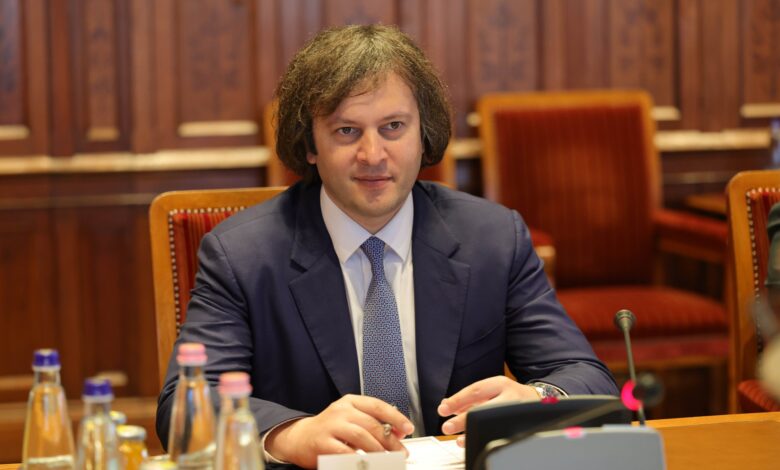
Kobakhidze Says ODIHR Monitoring of Local Elections ‘Unnecessary’
Georgian Dream Prime Minister Irakli Kobakhidze said inviting the OSCE’s Office for Democratic Institutions and Human Rights (ODIHR) mission to observe Georgia’s upcoming local elections would be “unnecessary.”
“We believe that in this case, tasking OSCE/ODIHR with our municipal elections would be unnecessary,” Kobakhidze told reporters on June 18. “The local elections will be carried out in an absolutely healthy manner,” he added.
Kobakhidze was asked about plans regarding the OSCE/ODIHR mission following the calls by the British Embassy in Georgia to invite the top international election watchdog. ODIHR confirmed to Civil.ge on June 12 that it had not yet received such an invitation from Georgian authorities, noting “ideally,” it should receive invitations four to six months before election day.
Kobakhidze claimed that ODIHR typically does not observe local elections, doing so only in “exceptional” cases. “There was a similar deviation in our case, too – for example, in 2021 — because in some way those [local] elections were linked to the topic of parliamentary elections,” he said.
“According to standard practice, OSCE/ODIHR missions are invited for parliamentary elections, national elections,” Kobakhidze said.
OSCE/ODIHR observed the 2021 and 2017 local elections in Georgia with large monitoring missions. Georgian authorities also sent an invitation to OSCE/ODIHR to observe the 2014 municipal elections, but ODIHR said at the time observation was unlikely, citing its financial issues.
With less than four months remaining until the October 4 vote, the local elections are approaching amid continued resistance and government repression. Following the last elections, the GD government lacks both domestic and international legitimacy but has pledged to win all 64 municipalities and crush the opposition.
Meanwhile, the opposition remains split over participation: some seek to contest and win major cities like Tbilisi, while others push for a boycott, claiming the race is inherently unfair under current conditions. The municipal vote is planned as local election watchdogs find themselves under growing pressure as GD intensifies its legislative crackdown on civil society organizations, among others.
Kobakhidze also criticized others for “ignoring” ODIHR’s findings from the previous elections. “OSCE/ODIHR observed the [2024] parliamentary elections and issued a relevant final report, but nobody showed interest in that report,” Kobakhidze said. “And today, the same people who completely ignored the final report are demanding that we invite OSCE/ODIHR them again.”
In its final report on the October 26 parliamentary elections in Georgia, the OSCE/ODIHR said the vote was generally “well-administered,” but raised “serious concerns” about new laws affecting civil society and fundamental freedoms, efforts to weaken election-related institutions, and voter pressure. These issues, along with election day practices, “compromised the ability of some voters to cast their vote without fear of retribution.” The report also criticized the lack of post-election legal remedies.
Also Read:
- 17/06/2025 – Treason or Opportunity – Opposition Squabbles over Municipal Elections
- 30/04/2025 – Local Elections: New Divisive Issue for Opposition
This post is also available in: ქართული